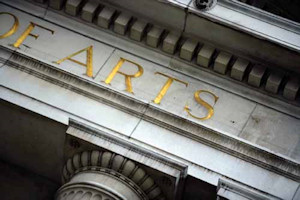Mapping out the future for the School of Arts, Languages and Cultures
04 Dec 2013
How the Change Management and Process Improvement team helped to smooth the path towards efficient working for a newly merged school.

When the School of Arts, Languages and Cultures was formed on 1 September 2012, out of the merger of the two former schools of Arts, Histories and Cultures and Languages, Linguistics and Cultures, it brought together 17 different discipline areas, plus the University Language Centre, 6,500 undergraduate and postgraduate students, 350 academic staff and 100 Professional Support Services (PSS) staff.
Such a complex mix could have been a recipe for chaos, especially when it became clear during the lead-up to the merger that PSS staff in the two former schools were working in slightly different ways, despite providing similar support and services to students and academic members of staff.
The Change Management and Process Improvement (CMPI) team were therefore asked to help PSS managers and staff in undertaking a review of priority processes, which included Recruitment and Admissions, Residence Abroad, External Relations, and Teaching and Learning.
Process mapping sessions brought together new colleagues to agree consistent ways of working whilst maintaining and seeking to improve student and staff experience. The resulting series of process maps underpinned the administrative processes in the new School of Arts, Languages and Cultures and now provides an invaluable reference point for both new and experienced staff.
Working as an integral part of the management team as they moved towards the merger, the CMPI team provided a patient, knowledgeable and reassuring presence. Their focus on customer experience, stakeholder satisfaction and a desire to improve current models of working has stayed with the management team, which has continued to refer to CMPI methodology as they look to achieve continuous further improvement.
More than a year on from the merger, Arts, Languages and Cultures is about to enter a period of reflection and review and with the need for continuous improvement embedded as a core belief, the School is confident that their service levels will only improve in the future.
Elizabeth Nolan, Deputy Head of School Administration and Teaching and Learning Manager, said:
“During the merger of two large Schools, process mapping was a useful tool for bringing together very different and diverse teams in a collegiate and non-defensive manner.
“This worked particularly well in our Student Support and Guidance Office, where the teams were able to bounce ideas off one another, brainstorm and develop new ways of thinking and processes that were then implemented to enhance the student experience in the new School.”
To find out more about the review and its outcome, read the full project case study online at:
How the CMPI could help you
The provision of lean and effective processes which meet the expectations of staff, students and partners is one of the University’s enabling strategies for achieving its key operational priorities and the 2020 Agenda.
Set up in 2012 to support that strategy, the CMPI team has already worked with many units around the University to help them provide high quality services based on processes which are effective, efficient and more ‘customer’ focused. Process improvement can also help to reduce frustrations for staff and enhance their job satisfaction.
For full information about the services offered by CMPI and contact details for the team, visit:
